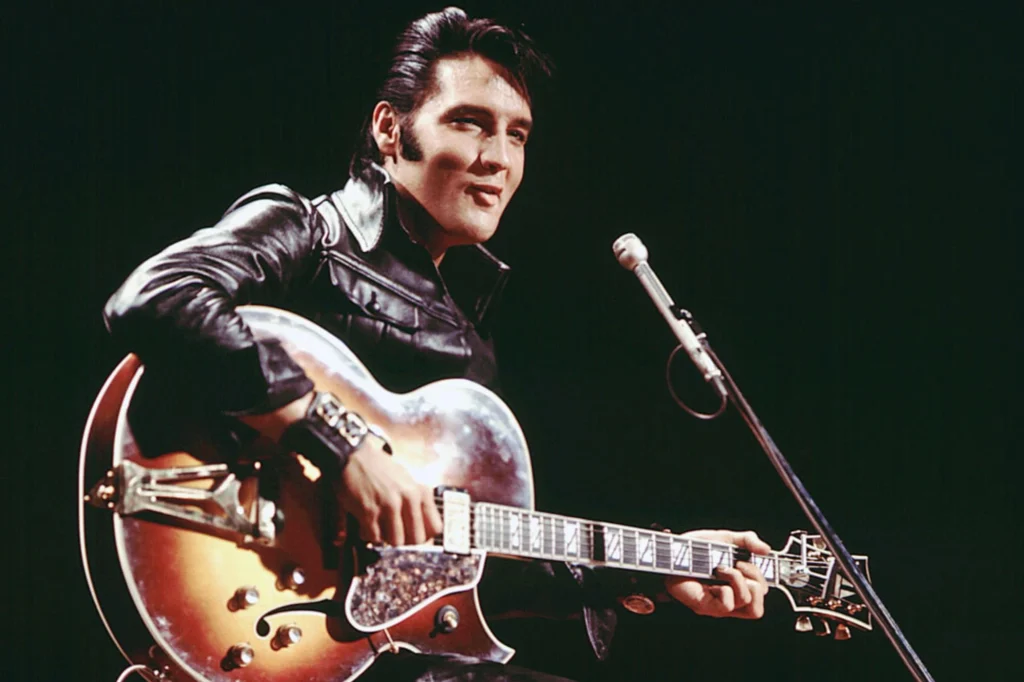
A Final Roar of Passion from the King, As Fire Meets Fury in Rock ‘n’ Roll’s Twilight Hour
Released in August 1972, “Burning Love” by Elvis Presley surged to No. 2 on the Billboard Hot 100, his highest-charting single in the U.S. since “Suspicious Minds” in 1969, and ultimately his last Top 10 hit during his lifetime. Featured on the album “Burning Love and Hits from His Movies, Volume 2,” this incendiary track marked a rare return to the energetic roots of Presley’s rock ‘n’ roll beginnings—a defiant blaze of vitality as he approached the final act of his storied career.
The song was penned by Dennis Linde, a Nashville songwriter known for his sly wit and deep grasp of Americana’s odd corners. Though “Burning Love” wasn’t written specifically for Elvis, it became a vessel through which he rekindled the primal fire that first defined him. At a time when Presley was increasingly entangled in the theatrical excesses of Las Vegas residencies and struggling under the weight of personal demons, this three-minute burst of volcanic intensity reminded audiences—and perhaps even Elvis himself—of who he once was: a cultural force capable of channeling longing, lust, and liberation into pure sound.
There’s something inherently poignant about Elvis’s delivery here. The lyrics are deceptively simple—an ode to a love so intense it scorches the very soul—but Presley imbues each line with a ferocity that borders on desperation. “Your kisses lift me higher / Like the sweet song of a choir / You light my morning sky / With burning love.” These aren’t just metaphors; they’re prayers shouted into a void, pleas for connection at a time when the man behind the myth was growing increasingly isolated.
Musically, “Burning Love” is unrelenting. Its opening guitar riff—raw and immediate—announces itself with authority, and Presley’s voice rides that wave like a man possessed. The rhythm section punches with near-military precision, while backing vocals echo like ghosts of the gospel choirs that once buoyed his Sun Studio recordings. It’s both polished and primal: a studio-crafted anthem that somehow retains the sweat-soaked urgency of live performance.
Yet beneath its triumphant exterior lies a certain melancholy resonance. This wasn’t just another hit single—it was one of Elvis’s last great moments at the forefront of popular music. As rock shifted toward new frontiers and younger icons claimed the mantle he’d forged, “Burning Love” stood as a blazing reminder of Presley’s unmatched capacity to fuse sensuality with sincerity, swagger with soul.
In hindsight, this song feels less like a mere comeback and more like a benediction—a searing farewell to the stage he once commanded with effortless grace. In “Burning Love,” Elvis Presley didn’t just sing about fire; he became it one last time, illuminating a fleeting moment when passion burned brighter than decline.